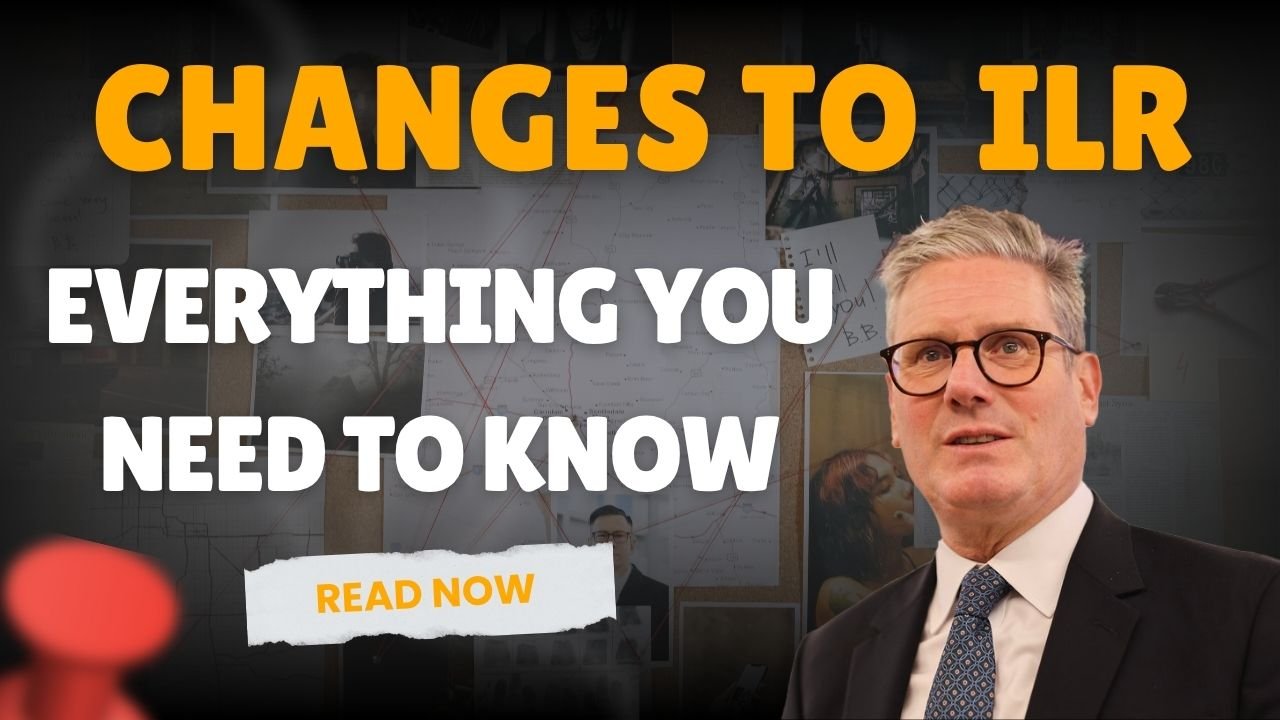Thinking about getting settled status in the UK? Big changes may be on the way. Here’s a clear breakdown of the proposed reforms to ILR (Indefinite Leave to Remain) and how they might affect you.
What Is ILR?
Indefinite Leave to Remain (ILR) is a form of permanent status in the UK. With it, you can live, work, study, and access public services without time limits. For many immigrants, ILR is the step before applying for British citizenship.
Why the Talk About Change?
A new government white paper, Restoring Control over the Immigration System, proposes wide-ranging immigration reform. Part of the plan is to tighten pathways to permanent settlement. GOV.UK+2House of Commons Library+2
The aim: require migrants to “earn” their right to settle permanently, not just by tenure but by contribution and compliance.
Current ILR Rules (For Context)
By today’s rules, to be eligible for ILR you generally need to:
-
Complete a period of continuous lawful residence, often 5 years (or sometimes 10, in other routes)
-
Pass the English language test and Life in the UK Test
-
Have a clean criminal record and no major immigration violations
-
Meet route-specific criteria (for example, under Skilled Worker, family, etc.)
What’s Proposed to Change?
Here are the major reforms under discussion:
| Change | What It Means | Possible Impact |
|---|---|---|
| Qualifying period extended | The standard route to ILR for many migrants would move from 5 years to 10 years | It would take much longer to qualify for settlement unless you meet special criteria |
| “Earned settlement” concept | Some migrants might qualify more quickly if they’ve made “contributions” — e.g. strong work history, tax/National Insurance, volunteering, community service | Those who can’t show strong contributions may face delays or may never become eligible |
| No permanent settlement for some | Some visa categories might become permanently temporary, never eligible for ILR | You might have to renew your visa indefinitely, always under uncertainty |
| Stricter documentation & proof | Applicants may need detailed records of employment, taxes, NI, community work, etc. | Gaps in records or weak documentation could block your application |
| Higher language & character requirements | Expect more demanding English tests and stricter checks on criminal history or character | Even minor infractions may disqualify you under the new rules |
| Benefit use restrictions | Relying on certain public benefits could disqualify you from ILR under the new rules | Be cautious about claiming benefits while aiming for settlement |
What Are the Concerns?
-
Longer uncertainty: A 10-year wait means more visa renewals, more fees, and more stress.
-
Fairness: Migrants already on track under the 5-year route may fear being caught in a shifting goalpost.
-
Uneven “contribution” criteria: It may favour people in certain jobs or sectors, disadvantaging others.
-
Administrative and legal burden: The Home Office would need to assess “contributions,” monitor compliance, and manage appeals—all with more complexity.
-
Impact on families and workers: Delayed settlement affects family stability, mortgages, long-term planning, and job security.
Is It Already Law?
Not yet. These changes are proposals at this stage. The current ILR rules remain in effect for now. Migration Observatory+3Citizens Advice+3House of Commons Library+3
If they go through, they must pass formal consultation, legal drafting, and parliamentary approval before becoming law.
What If You Already Have ILR or Are on the Path?
-
If you already hold ILR: You’re generally safe—you won’t lose it because of these changes.
-
If you’re already applying or eligible under current rules: You should pursue your ILR under the existing path as soon as possible.
-
If you’re just starting your journey to ILR: You may want to fast-track your applications, maintain impeccable records of work, taxes, language, and community activity.
Final Thoughts
ILR is one of the most valuable immigration rights in the UK. The proposed reforms would make it harder, slower, and more conditional.
If you are a Nigerian in the UK aiming for settlement:
-
Keep your documentation clean and consistent
-
Maintain long, continuous employment and contributions
-
Complete language and civic knowledge early
-
Monitor policy developments closely
Join Our WhatsApp Channel
Stay updated on the latest UK news, including education, health, job openings, and more for those living in the UK!
Join here: Naija UK Channel
Also, follow us on our social media channels for the latest updates and discussions:
- Twitter: @NaijaUKConnect
- Facebook: Naija UK Connect
- Instagram: @naijaukconnect




